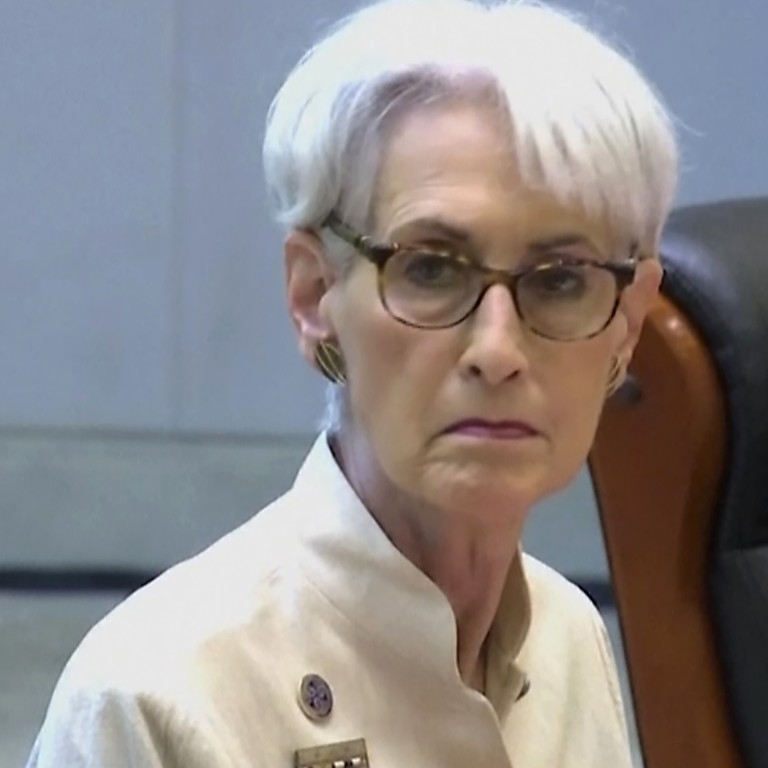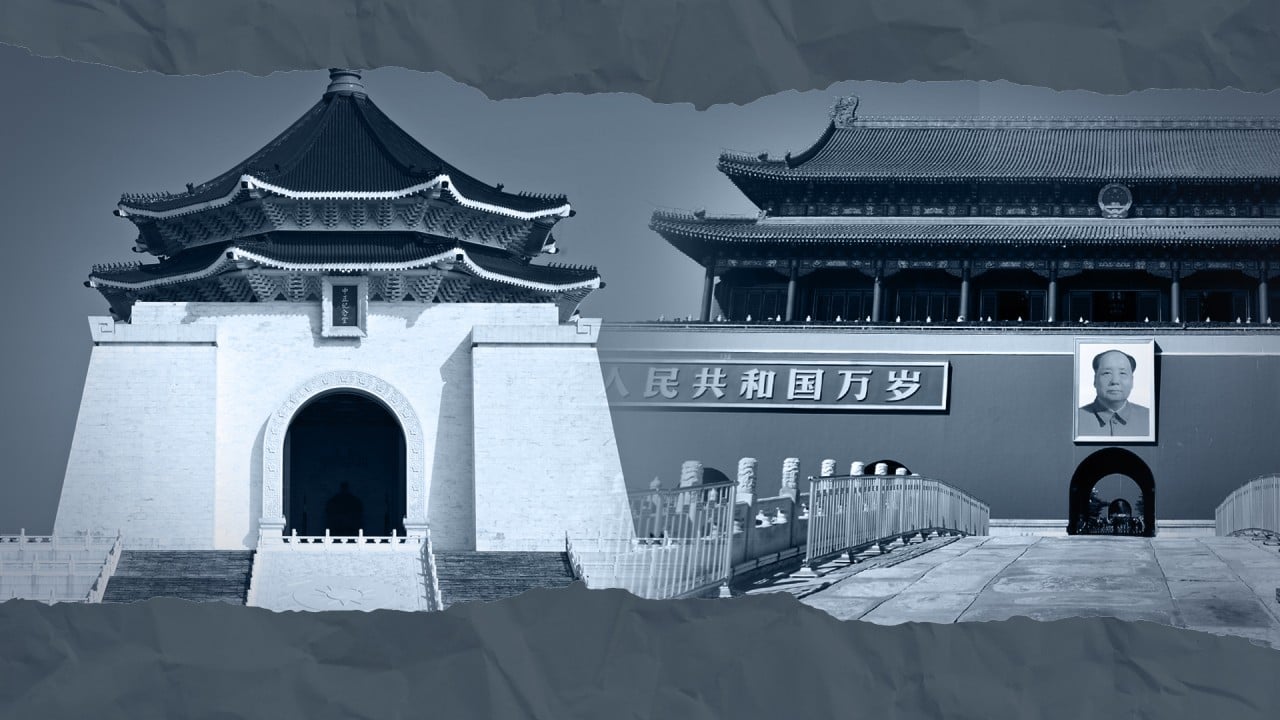
Sherman talks signal firm US support for Taiwan but ‘no blank cheque’
- Deputy secretary of state raised concerns with Beijing over ‘aggressive actions’ during visit to China
- Analysts say this week’s meetings suggest relations between Taipei and Washington have ‘remained robust’
But they did agree on “the importance of maintaining open lines of communication between our two countries”, according to State Department spokesman Ned Price. He said Sherman also told Wang that while the US welcomed “stiff competition” with China it did not seek conflict.
On Taiwan, Wang told Sherman that the island was part of China and called on the US not to infringe upon China’s sovereignty. “If Taiwan independence forces dare to provoke, China has the right to take any necessary measure to stop it,” Wang said, according to the Chinese foreign ministry. “We urge the US side to honour its commitment on the Taiwan question and act prudently.”

Taipei later thanked Washington for raising concerns about Taiwan in the talks. Foreign ministry spokeswoman Joanne Ou said Taipei and Washington had been in close communication about Sherman’s visit. She said the island was a democratic nation and its future would be decided by its 23.5 million people.
Lu Yeh-chung, a professor of diplomacy at the National Chengchi University in Taipei, said the Tianjin meetings suggested the island still had the firm support of Washington.
“From what’s been reported, the talks reflected the fact that our relations with the US have remained robust under the [Joe] Biden administration,” Lu said.

10:22
Why has the relationship between the Chinese mainland and Taiwan taken a turn for the worse?
But Lu noted that the US had adjusted its position in the past to protect its interests, pointing to former president Bill Clinton spelling out the “three no’s” – not to support Taiwan independence, its membership of organisations that require statehood, or “one Taiwan, one China” – on a trip to China in 1998. They had not been publicly stated by a US president since they were agreed to when Washington ended its formal diplomatic relationship with Taipei.
Lu added that Taiwan was a “small actor” in terms of US foreign policy and that Biden appeared to be taking a more restrained approach than Trump so it was unclear whether Washington would defend the island in the event of a Chinese attack.
Taiwan, Beijing and the US: has Japan chosen a side?
“While the US support for Taiwan appears to be rock solid, there is no blank cheque here,” Li said.
Earlier this month, the White House’s Indo-Pacific coordinator Kurt Campbell said US-Taiwan relations were a “dangerous balance” between advocating for Taipei’s role on the global stage and avoiding a military confrontation with Beijing.
Speaking at an online event hosted by the Asia Society Policy Institute, he said the US supported a strong “unofficial relationship” with Taiwan but “we do not support Taiwan independence” as the Biden administration was fully cognisant of the “sensitivities” involved in cross-strait relations.
Li said the US was unlikely to seek conflict with China, and that the Sherman visit would pave the way for more high-level talks.

